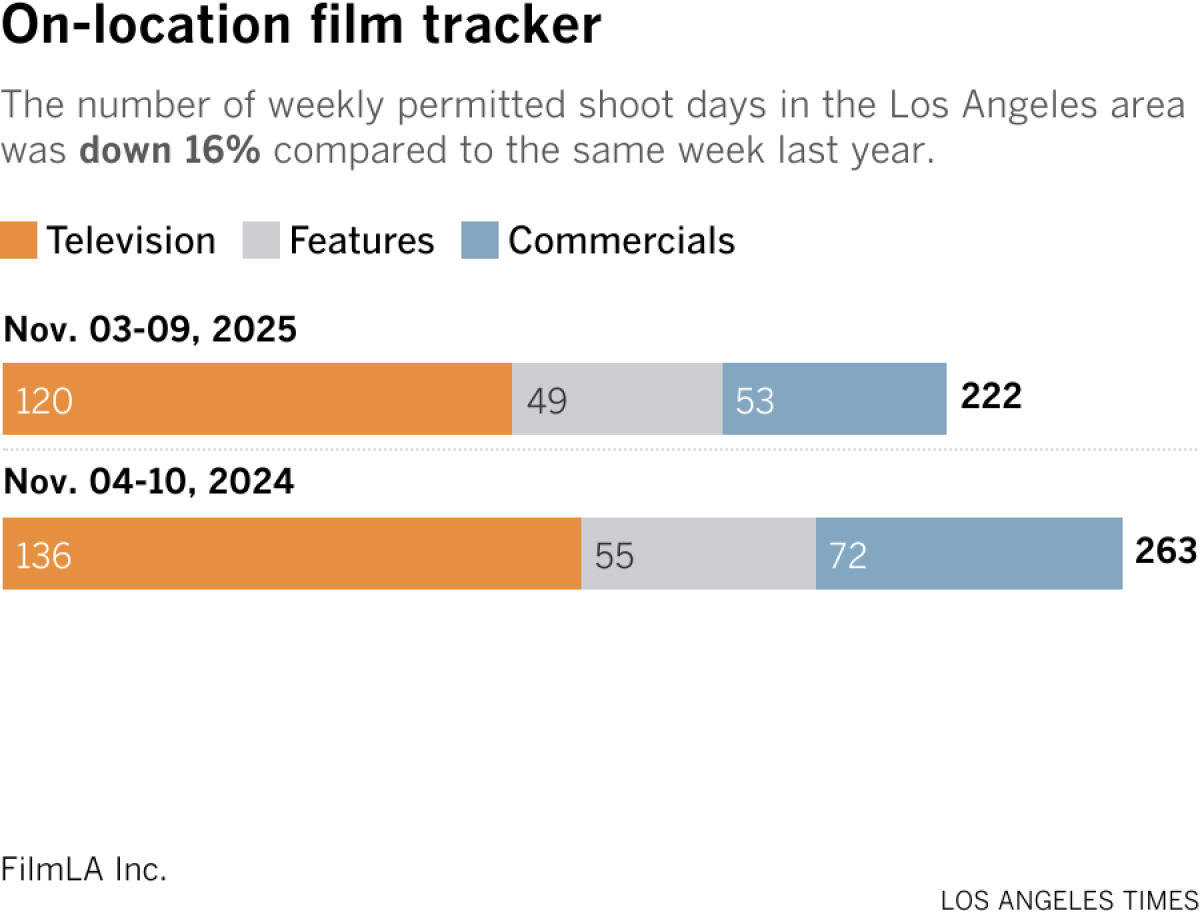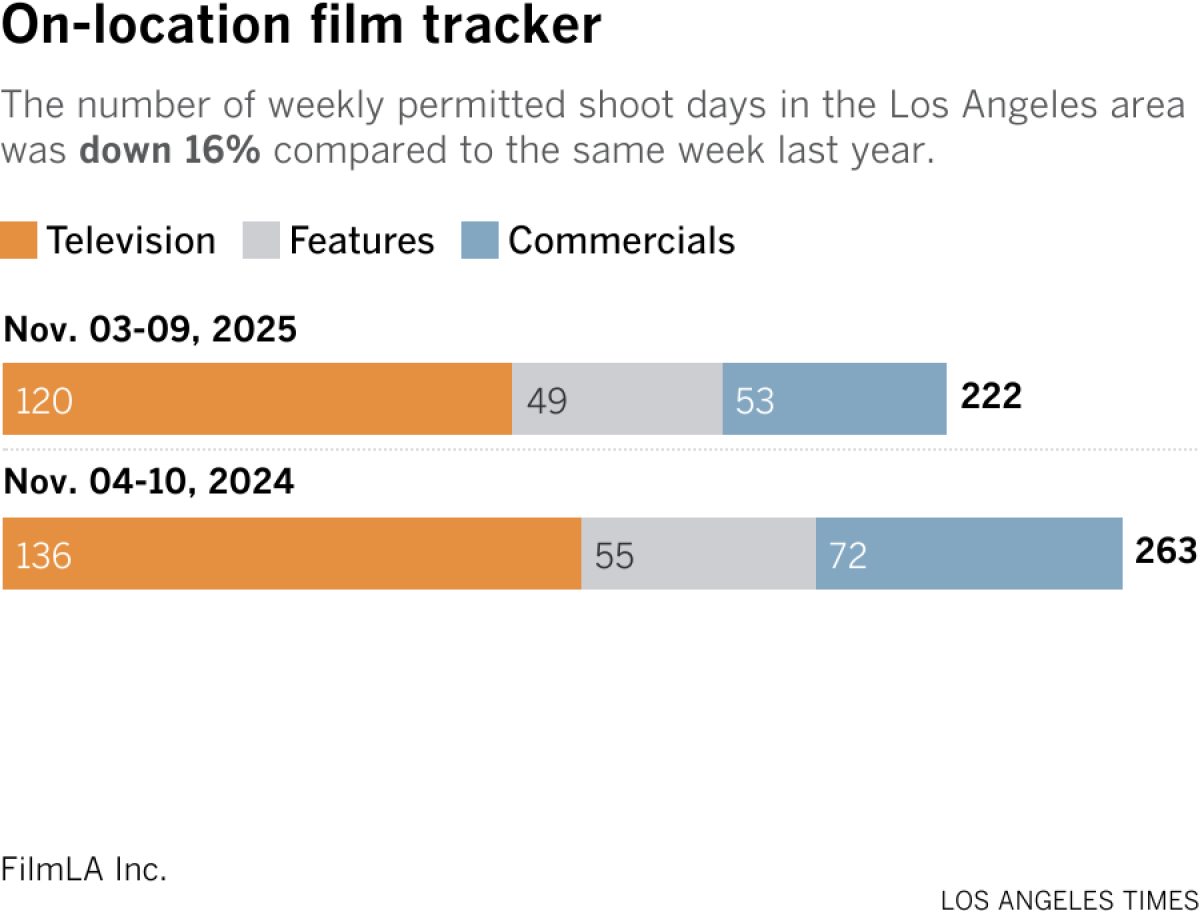This week, Lionsgate is betting that the odds will be in their favor when “The Hunger Games: On Stage” opens at London’s Troubadour Canary Wharf Theatre.
The play, which is based on the young adult novel by Suzanne Collins and 2012 film that catapulted actor Jennifer Lawrence into the mainstream, is just the latest film-to-stage adaptation from Hollywood.
This isn’t a new playbook. After all, Disney revolutionized the space by adapting its animated films like “The Lion King,” “Beauty and the Beast” and “Aladdin” into Broadway musical hits. But it is one that studios are turning to again, particularly as they look to connect more deeply with audiences and expand the fan base of their franchises.
Last year, Universal Theatrical Group debuted a musical stage adaptation of the 1992 film “Death Becomes Her” on Broadway.
In addition to “The Hunger Games,” Lionsgate has several other theatrical shows in the works, including a stage adaptation of the 2017 film “Wonder” opening in Boston in December, as well as “Now You See Me Live” opening that same month at the Sydney Opera House.
Next year, there will be a stage version of “La La Land,” as well as a new production of the iconic classic “Dirty Dancing.” (Of course, the opposite is also happening, with “Wicked” as the most recent example of a book-to-stage-to-film pipeline.)
“When you look at the way that fans are engaging with entertainment, there are so many different mediums that are important now, and experiential is a big one,” Jenefer Brown, Lionsgate’s president of global products and experiences, said an interview. “With all of us spending so much time online and in digital mediums, the idea of that shared live experience in a theater is something that’s highly appealing.”
But getting “The Hunger Games” to the stage wasn’t easy — the process took almost seven years from the inception of the idea to first previews. As part of the show’s development, the producers also built a custom theater in London. Brown spoke with The Times about why the dystopian franchise was a good candidate for live theater and why communal experiences are so important.
This interview has been edited for clarity and length.
What made “The Hunger Games” ripe for the stage?
It’s an enduring story that has so much relevance to occurrences that happen in the world today. I think that there’s just a ton of cultural significance.
And what we know about “The Hunger Games” is that there’s always a new wave of fans that discover it. Now we’re seeing Gen Alpha reading the books and watching the movies, and of course, we have Gen Z fans and millennial fans, and parents from other generations who have been on the journey with their children. It’s a way to bring aspects of the book to life, maybe in a different interpretation, or to let fans be able to explore certain things in a greater depth than we were able to do on a movie screen.
What does a stage play do for audiences that, say, a series or ride does not?
When you’re seeing something live, we don’t have the tricks that we have behind a camera in a movie.
You have to really find ways to bring the audience on a journey, and you can’t hide anything. That’s part of the magic of the experience, and for fans to be there and be mesmerized by some of the things that we’re executing in real time on a stage with special effects and illusions and real people doing the stunt choreography and the stunt work right in front of you, I think that there’s a lot of value in that type of experience.
Does this allow you to reach different audiences than those who already saw the films?
Obviously, a lot of fans are interested, but I think theatergoers in general, who maybe haven’t been as exposed to “The Hunger Games” or aren’t super fans, are going to be interested from the theater side of it. There’s been a lot of buzz and excitement in London, in the theater world, knowing that we had a new theater being built.
In general, lots of of people want to engage with experiences. We’re seeing just a huge sort of upward trend in interest, particularly amongst Gen Z and Gen Alpha audiences. Someone who maybe has read the books but hasn’t seen the movie yet will come see the stage show and then watch the movie. And I think this idea of all of it feeding each other, depending on which entry point you choose, is a really interesting thing for us as a studio to think about.
Did the pandemic turbocharge interest in live entertainment?
It’s an interest in live stage and live entertainment, and the idea of getting out again, supporting the arts and supporting shared experiences. We’ve definitely seen, thankfully, a recovery and an upswing in that area.
How big of a business is the stage aspect of Lionsgate global products and experiences?
We have three shows opening before the end of this year, and about that number slated for next year. So it really is a very busy and active space for us, and I think more in the pipeline. We probably are spending about a third of our time in this space, and I don’t see that changing.
Stuff We Wrote
Film shoots

Number of the week
$80 million
After a sleepy October, Walt Disney Co. and 20th Century Studios’ “Predator: Badlands” conquered the box office this past weekend, grossing $40 million in the U.S. and Canada for a total of nearly $80 million worldwide.
The haul is the highest global opening for any film in “Predator” franchise history, surpassing 2018’s “The Predator,” which notched $73.5 million.
The strong start for the Elle Fanning-led “Predator: Badlands” provides a hopeful start for November’s theatrical fortunes. So far this year, domestic box office revenue is about $7.2 billion, up 3.1% compared with the previous year, according to Comscore. But when compared with pre-pandemic 2019, that number is still down 24.7%.
Finally …
My colleague, Malia Mendez, wrote about a TV writer who found a second career in ceramics after the slowdown in Hollywood left him out of work. His most popular workshop — Tattoo a Mug.
